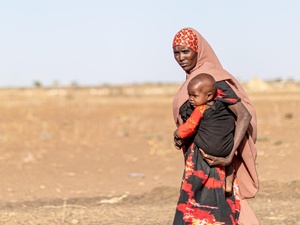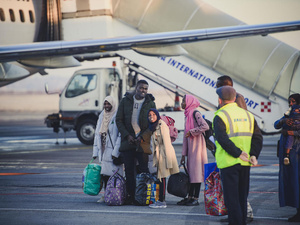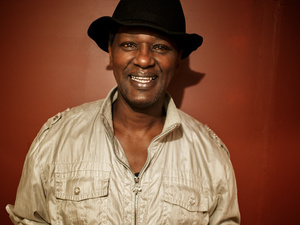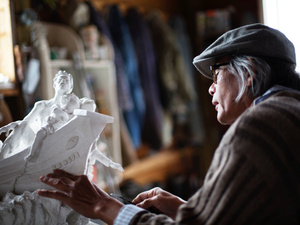For resettled refugees in Baltimore, many needs, one destination
For resettled refugees in Baltimore, many needs, one destination
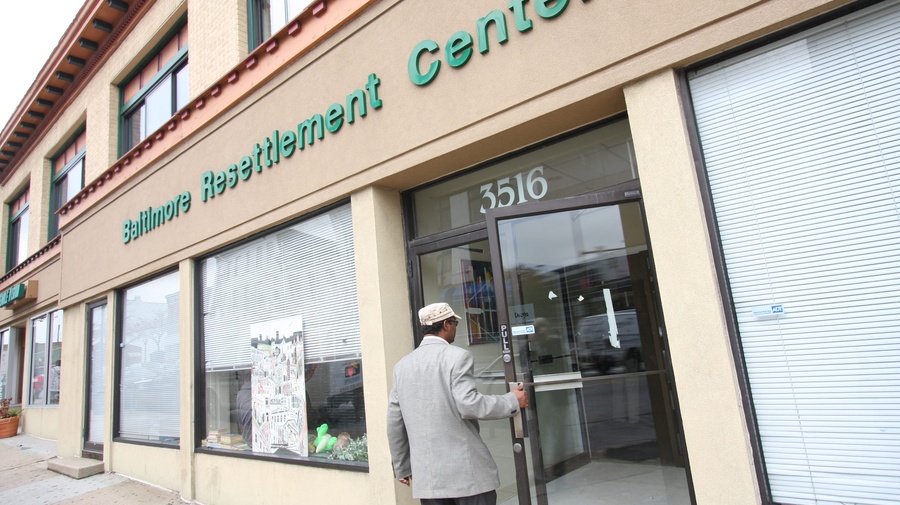
Baltimore's resettlement centre brings together five organizations providing newly arrived refugees with comprehensive integration assistance.
BALTIMORE, United States, October 22 (UNHCR) - Two years after he first arrived here, Ahmed al Badri, a former refugee from Iraq, returned to the Baltimore Resettlement Centre.
The facility provides assistance to hundreds of refugees, asylum-seekers and migrants each year, but Badri's purpose was simply to catch up with some of the staff who helped him get started in a city known to many television viewers as the setting of the gritty police drama, "The Wire."
Badri arrived in Baltimore with his wife and young son in October 2008 after being referred for resettlement by UNHCR in Amman, Jordan. Like all resettled refugees starting out in this city, his first bewildering day in the United States began at the resettlement centre.
Now working as a repairman for a major retailer, and looking after his parents who joined the family last year, he's also training to become a truck driver. "Life in the United States is good, but hard," he said. "You have to work hard to get by. I couldn't have done it on my own."
In most US cities, accessing the assistance available to ease the integration of newly arrived refugees requires visiting different agencies in different locations. Baltimore's "one-stop shopping" approach, which brings together five government and non-profit organizations under the same roof, provides refugees with help in finding a job, learning English, receiving vaccinations as well as psycho-social support - all for a single bus fare.
"The resettlement centre makes accessing services easier for new arrivals, but it also allows us to provide those services in a more comprehensive and effective manner," said Robert Dira, executive director with the International Rescue Committee, one of two non-profit agencies working at the centre. "Working side-by-side with other organizations, we can talk to each other and follow up on beneficiaries' progress and more easily address any gaps."
Three years ago, Chandra Bajgai was receiving advice on everything from finding a job to using Baltimore's transit system. Today, the former refugee from Bhutan is working for the newly-formed Association of Bhutanese in America (ABA). From his cubicle at the resettlement centre, Bajgai helps Bhutanese refugees - one of the largest refugee groups arriving in the United States - to surmount the many challenges that come with starting new lives in a new country. The most pressing for most is to learn English.
Bajgai's first job was as a cashier in a parking garage and, though he considered himself able to get by in English, he was stunned to find on his first day at work that he couldn't understand a word his colleagues were saying. "They spoke so fast, it could have been a different language," he recalled. "Now there are more of us here to help new families. It's easier than it was at the beginning."
With the unemployment rate in the United States above 9 per cent, the entry level jobs that were a refugee's traditional path into the workforce are harder to find. Mamadou Sy, who works for Lutheran Social Services, runs the centre's employment outreach programme.
In the past, he says, local employers would hire groups of resettled refugees. Today, it's more likely to be one or two. "When a refugee is interviewed for a job, it's more common now that he'll be competing with a US-born applicant who's fluent in English. It wasn't like that in the past," said Sy.
The employment unit continues to place refugees in jobs at a higher than anticipated rate, an accomplishment Sy puts down to a recognition on the part of employers of the new arrivals' determination to succeed in the US. But he concedes that wages are low, often little above the state minimum wage.
Though they are quicker to adapt to American life than their parents, refugee children face their own challenges. Bullying at school is common as is being pulled out of class to assist a parent who can't speak English. Parents may also not be able to help with home work or engage in their child's school life. A grant from the Federal Office of Refugee Resettlement allows the centre to run a youth outreach programme that works with 150 resettled children every year.
"We need to keep educating the community about the refugees who are coming here," said Robert Dira. "We support the refugees when they arrive, but we also have to inform the people they are going to be living and working alongside who these news residents are, where they've come from and how they got here."
In addition to the International Rescue Committee and Lutheran Social Services, the resettlement centre brings together Baltimore City Community College, Baltimore Medical Systems and the Maryland Department of Social Services.
By Tim Irwin in Baltimore, United States


